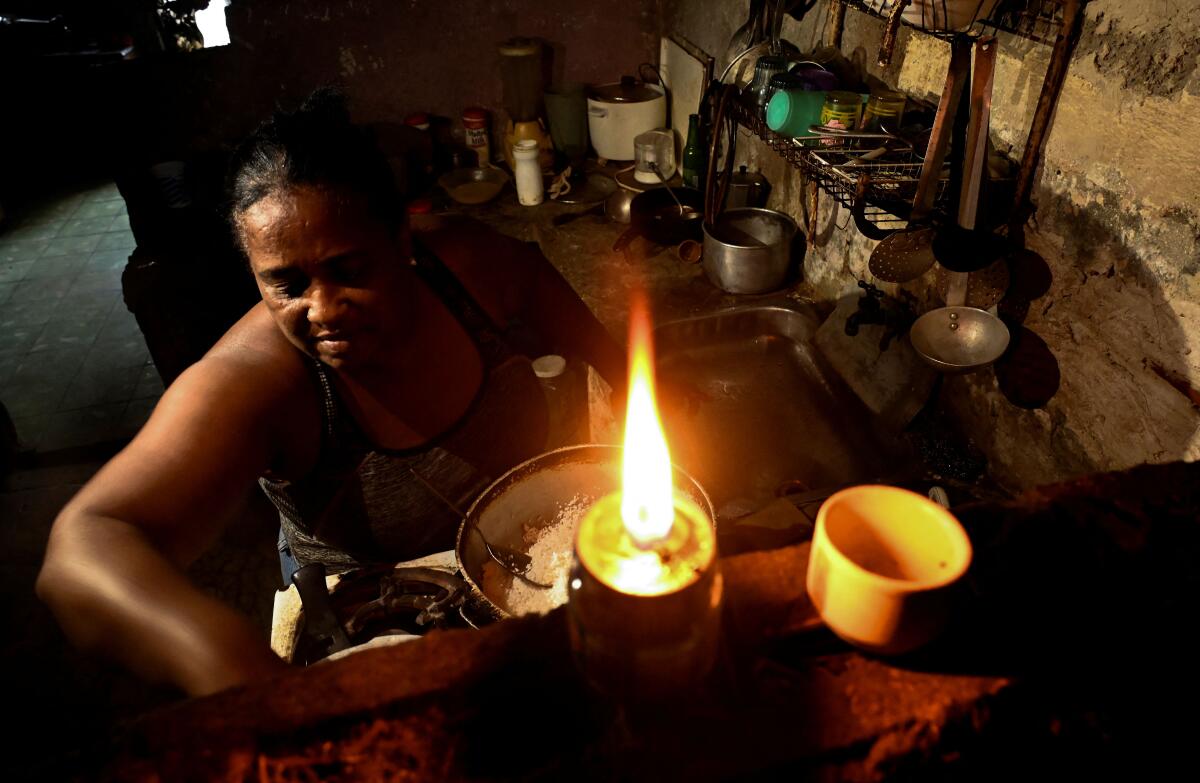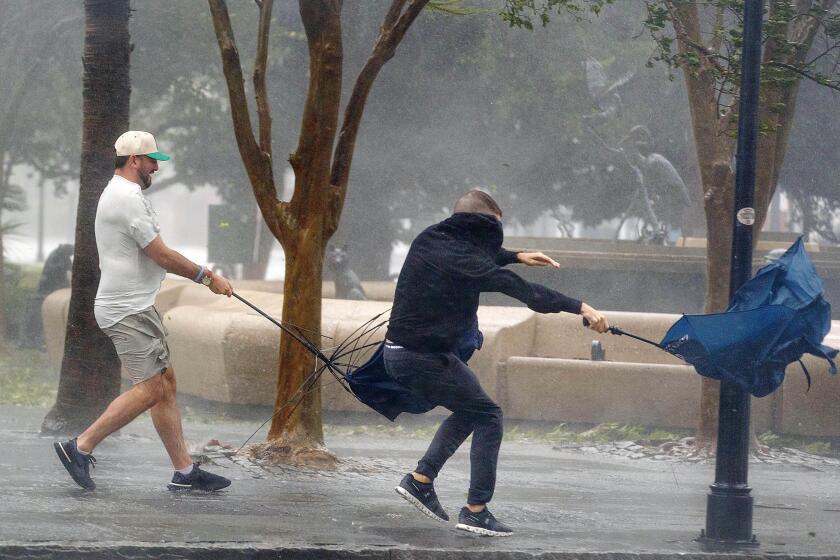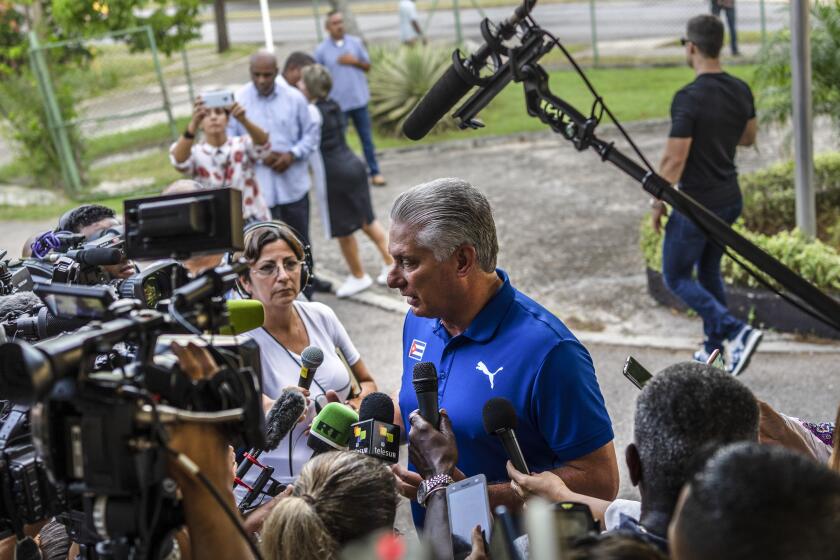Protests erupt in Havana over blackout from Hurricane Ian

- Share via
HAVANA — The power outage caused by Hurricane Ian has prompted protests in the streets of Cuba’s capital, as several hundred people demanded restoration of electricity after more than two days without it.
An Associated Press journalist saw about 400 people gathered Thursday night in at least two spots in the Cerro neighborhood of Havana shouting, “We want light, we want light,” and banging pots and pans.
It appeared to be the first public display over the electricity problems that spread from western Cuba, where Ian hit, to the entire island, leaving the country’s 11 million people in the dark. The storm also left at least three people dead.
Power was restored to much of the island within a day.
A revived Hurricane Ian pounded South Carolina on Friday after causing catastrophic damage in Florida and leaving at least 17 people dead.
On Thursday, groups that monitor internet access reported a “near-total internet blackout in Cuba.”
“We believe the incident is likely to significantly impact the free flow of information amid protests,” said Alp Toker, director of London-based NetBlocks.
Internet access had returned to some areas Friday morning.
On the Havana street Calzada del Cerro, protesters surrounded a crew trying to repair a pole and a light transformer. Protesters were out late into the night; the gatherings remained peaceful.
Cuban voters have approved a sweeping “family law” code that allows same-sex couples to marry and adopt. It also redefines rights for children and grandparents.
Repeated blackouts on the fragile power grid were among the reasons for Cuba’s largest social protests in decades in July 2021. Thousands of people, weary of power failures and shortages of goods exacerbated by the COVID-19 pandemic
and U.S. sanctions, turned out across the island to vent their anger. Hundreds were arrested and prosecuted, prompting criticism of the administration of President Miguel Díaz-Canel.
Cubans on Thursday complained that the power outages had forced them to throw out refrigerated meat and other goods that are costly or hard to find.
The government has not said what percentage of the population remained without electricity as of early Friday, but electrical authorities said only 10% of Havana’s 2 million people had power Thursday.
Calls by the AP to a dozen people in Cuba’s other main cities — Holguin, Guantanamo, Matanzas, Ciego de Avila, Camaguey and Santiago — found most reporting that their neighborhoods remained without electricity.
Experts said the blackout shows the vulnerability of Cuba’s power grid and warned that it will require time and resources to fix the problem.
Start your day right
Sign up for Essential California for the L.A. Times biggest news, features and recommendations in your inbox six days a week.
You may occasionally receive promotional content from the Los Angeles Times.
Cuba’s power grid before the storm “was already in a critical and immunocompromised state as a result of the deterioration of the thermoelectric plants,” said Jorge Piñon, director of the Latin America and Caribbean Energy Program at the University of Texas at Austin. “The patient is now on life support.”
Cuba has 13 major power plants, of which five have been rented from Turkey since 2019. There are also smaller plants throughout the country since an energy reform in 2006.
The government attributes the plants’ poor maintenance to a lack of funds and to U.S. sanctions, as well as to difficulty in obtaining fuel.
More to Read
Sign up for Essential California
The most important California stories and recommendations in your inbox every morning.
You may occasionally receive promotional content from the Los Angeles Times.











